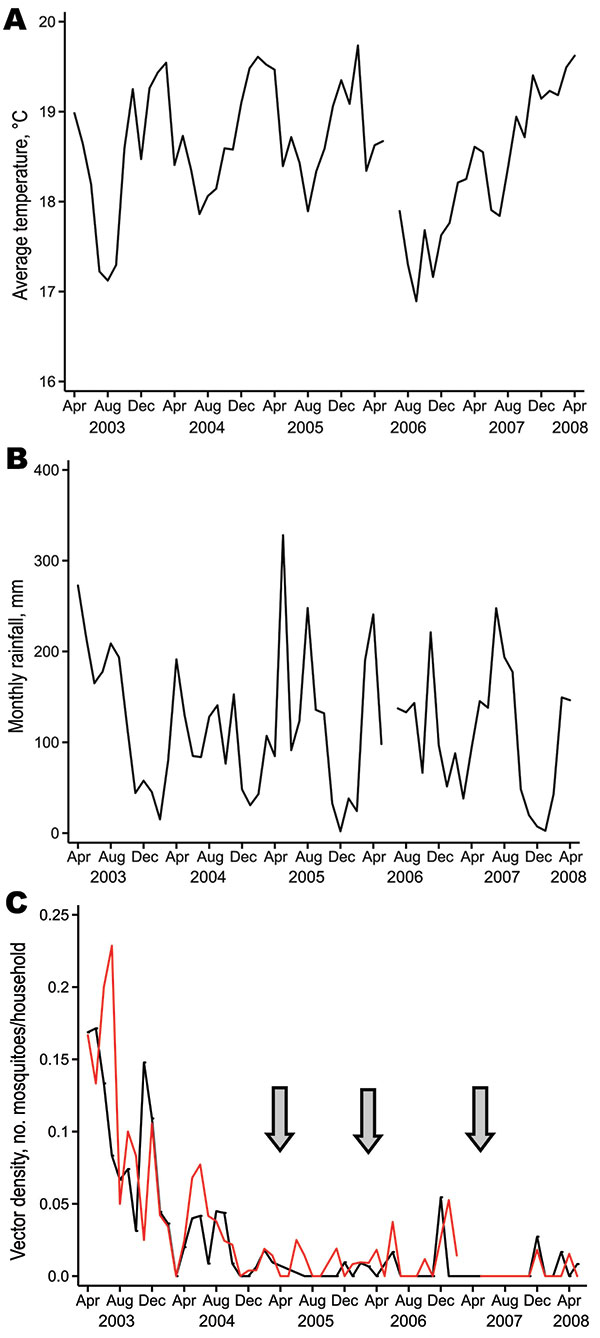Volume 15, Number 12—December 2009
Research
Possible Interruption of Malaria Transmission, Highland Kenya, 2007–2008
Figure 2

Figure 2. Temperature, rainfall, and vector density in 2 highland areas of western Kenya, April 2003–May 2008. A) Average daily temperature (°C) in Kipsamoite. B) Monthly rainfall (mm) in Kipsamoite. C) Median biweekly vector density (no. Anopheles spp. mosquitoes/household) in Kapsisiywa (red line) and Kipsamoite (black line). Gaps in panels indicate that no data were collected during these periods. Arrows indicate times when indoor residual spraying was conducted.
Page created: December 09, 2010
Page updated: December 09, 2010
Page reviewed: December 09, 2010
The conclusions, findings, and opinions expressed by authors contributing to this journal do not necessarily reflect the official position of the U.S. Department of Health and Human Services, the Public Health Service, the Centers for Disease Control and Prevention, or the authors' affiliated institutions. Use of trade names is for identification only and does not imply endorsement by any of the groups named above.